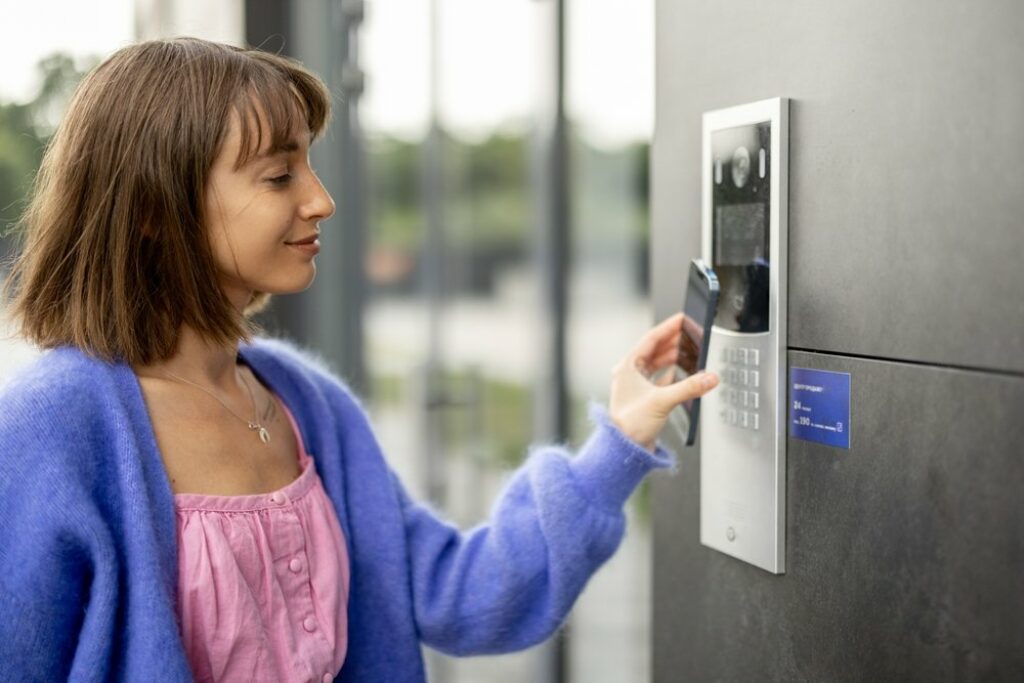
How To Enhance Your House Security With Door Access Control Systems
Without a doubt, home security is of paramount importance. And while you may think that sturdy locking mechanisms on your door are sufficient, why not boost the security measures with a door access control system?
Related Topics (Sponsored Ads):
In the quest for heightened home security, door access control systems stand out as a pivotal solution. With several options available on the market, these systems play a crucial role in safeguarding homes by regulating and monitoring entry points. By implementing door access control systems, homeowners can fortify their security measures and gain peace of mind.
This article discusses the types of door access control systems and their functionalities, as well the advantages they offer in bolstering home security.

Types of Door Access Control Systems
Door access control systems come in various forms, each offering unique features and capabilities. The four main types include keypad-based systems, card-based systems, biometric systems, and smartphone-based systems. Gaining a better understanding of the functionalities and benefits of each type is essential in making an informed decision about the most suitable system for your home.
Keypad-based Systems
Keypad-based door access control systems provide a convenient and versatile approach to home security. These systems employ a numerical keypad for user authentication, allowing homeowners to grant access through the input of a designated code. One of the key advantages of keypad-based systems is their ease of use. Authorized individuals can gain entry by simply entering the correct code, eliminating the need for physical keys. This not only enhances convenience but also reduces the risk of unauthorized key duplication.
Flexibility in code management is another notable feature of keypad-based systems. Homeowners can easily change access codes as needed, whether due to personnel changes or security concerns. This level of control over access codes adds an extra layer of security to the home. Moreover, keypad-based systems are compatible with various entry points, including doors, gates, and garages, making them a versatile choice for comprehensive home security.
Card-based Systems
Card-based door access control systems offer a streamlined and efficient approach to managing home security. These systems utilize access cards or key fobs as the means of authentication, providing a convenient and secure method for individuals to gain entry. One of the primary advantages of card-based systems is their scalability. Homeowners can easily issue and manage multiple access cards, making it an ideal solution for households with numerous occupants or for properties with multiple access points.
Better yet, card-based systems enable the tracking of access history, providing valuable insights into entry and exit patterns. This feature is particularly beneficial for monitoring and analyzing home traffic, enhancing security protocols, and investigating any security incidents that may occur. Additionally, the convenience of access cards or key fobs offers a seamless entry experience for authorized individuals, contributing to an overall positive user experience.
Biometric Systems
Biometric door access control systems represent the pinnacle of home security technology, offering unparalleled accuracy and reliability. These systems utilize unique biological traits such as fingerprints, retina scans, or facial recognition for user authentication. The high level of security provided by biometric systems is a standout feature, as it virtually eliminates the risk of unauthorized access. Biometric data is inherently unique to each individual, making it an extremely secure method of authentication.
Another advantage of this option is the elimination of physical keys or cards. This not only reduces the risk of unauthorized duplication but also enhances convenience for homeowners and authorized individuals. The accuracy and speed of biometric authentication further contribute to a seamless and efficient entry process. Although biometric systems represent a significant investment, their unparalleled security features make them an attractive option for homeowners seeking the highest level of protection for their property.
Smartphone-based Systems
In the era of smart homes, smartphone-based door access control systems offer a cutting-edge solution to enhance home security. These systems leverage the connectivity and capabilities of smartphones to provide remote access and management of entry points. As a homeowner, you’ll be able to grant access to authorized individuals remotely, monitor entry activities in real-time, and receive notifications of any access attempts, all through their smartphones.
The convenience of smartphone-based systems is a key advantage, as it allows homeowners to manage access to their property from anywhere, at any time. Integration with other smart home devices further enhances the overall security ecosystem, creating a seamless and interconnected approach to home security. Additionally, this type of system offers flexibility in user authentication, allowing for various entry methods such as digital keys or virtual access codes. This adaptability makes smartphone-based systems an attractive option for homeowners seeking a modern and comprehensive approach to home security.
Installation Tips
When considering the installation of door access control systems, several factors should be taken into account to ensure optimal functionality and security. You can choose between DIY installation and professional installation, each with its own set of considerations and potential benefits.
DIY installation may be suitable for homeowners with a certain level of technical expertise and familiarity with electrical and security systems. However, it’s essential to carefully follow the manufacturer’s instructions and guidelines to ensure the proper installation and configuration of the system. Potential challenges of DIY installation include the need for technical knowledge, the risk of errors or oversights, and the time investment required to complete the installation process.
On the other hand, professional installation offers the expertise and experience of security professionals, ensuring that the system is installed correctly and efficiently. Professionals can assess the specific security needs of the home, recommend the most suitable system, and handle the installation process from start to finish. Overall, while professional installation may involve additional costs, it provides peace of mind and ensures that the system functions optimally, maximizing its effectiveness in safeguarding the home.




